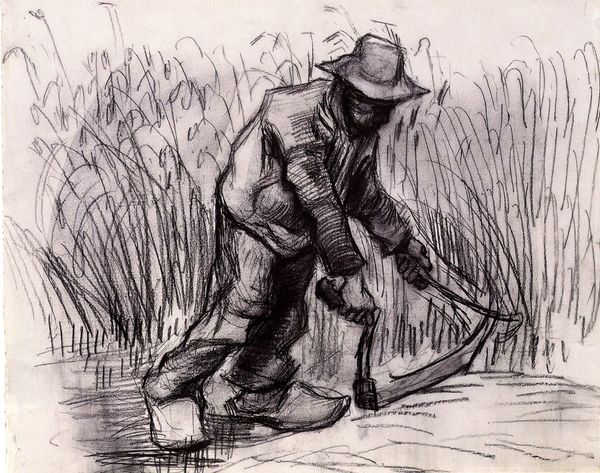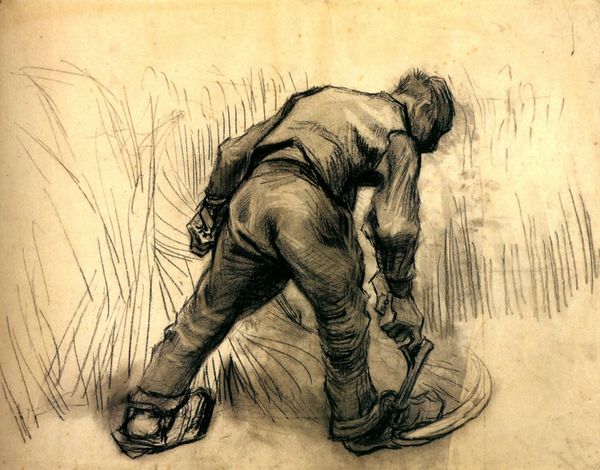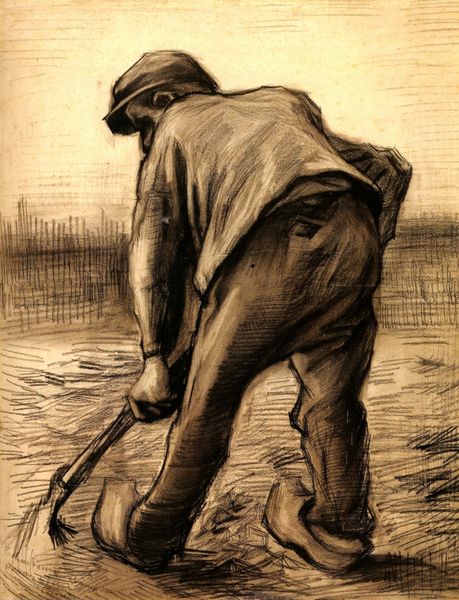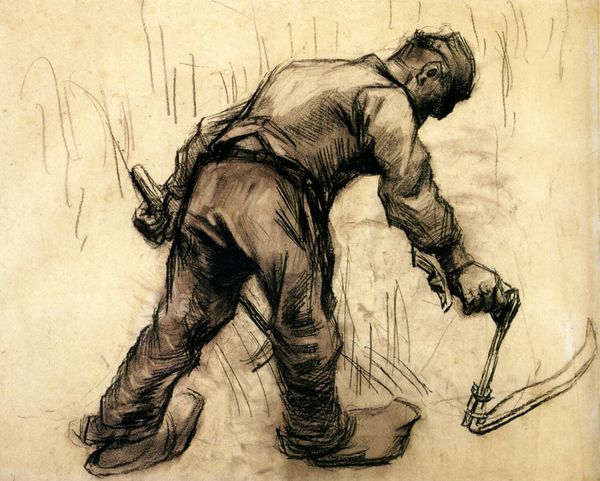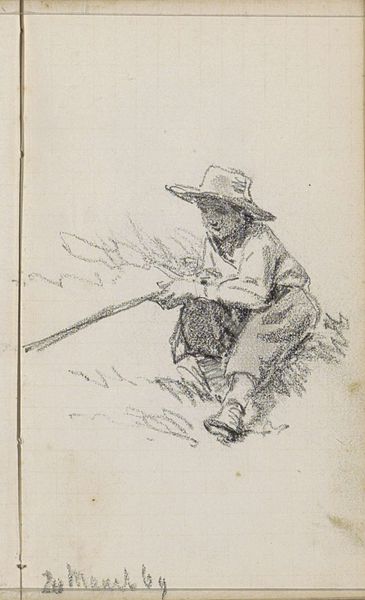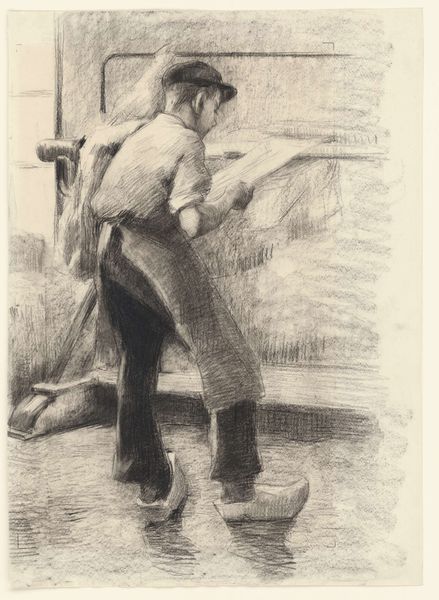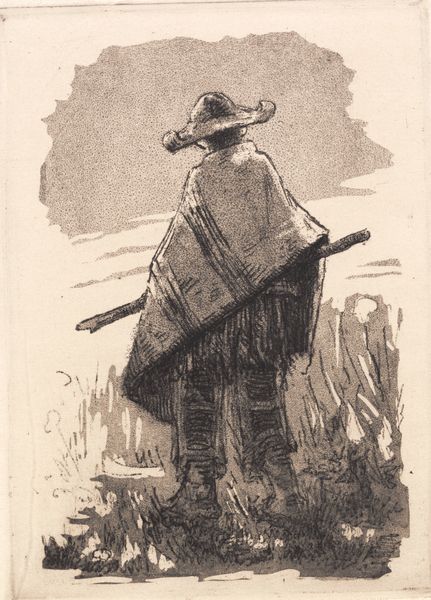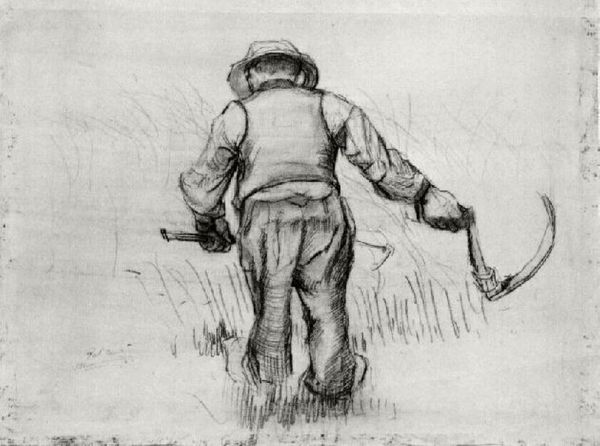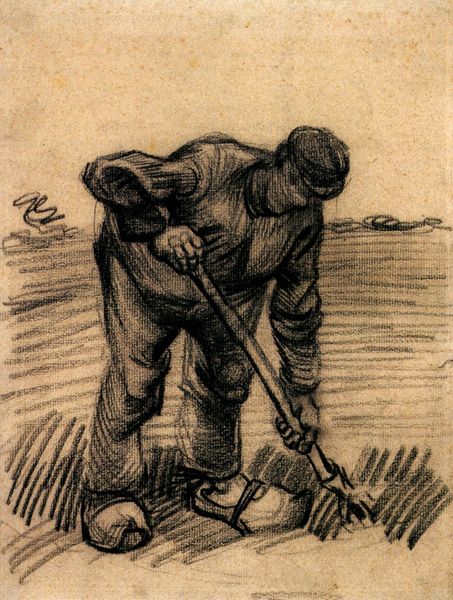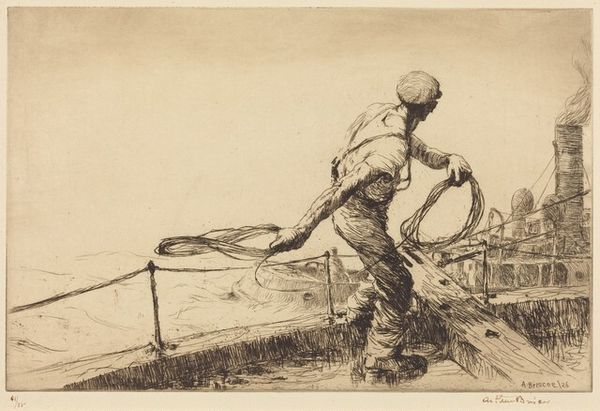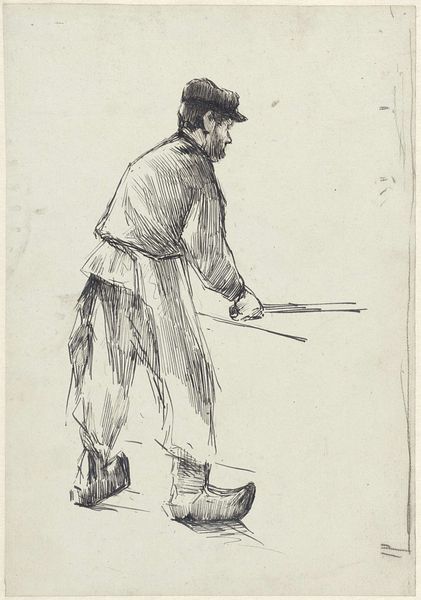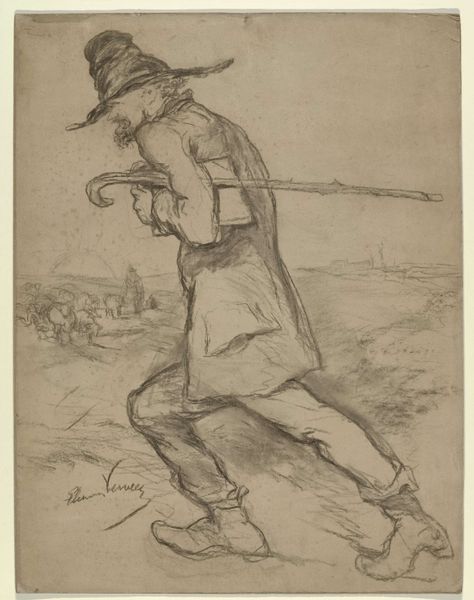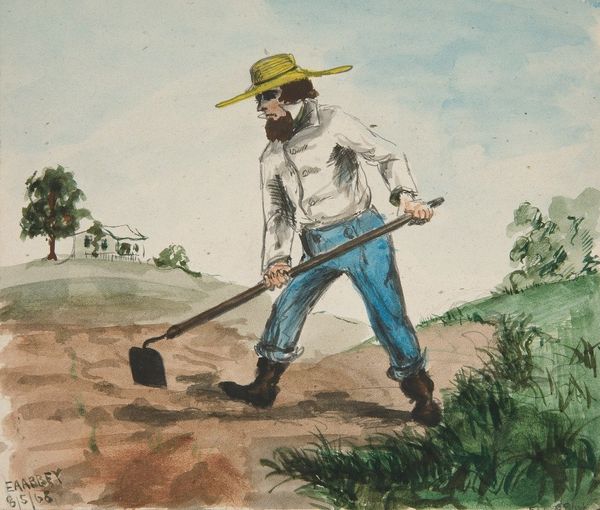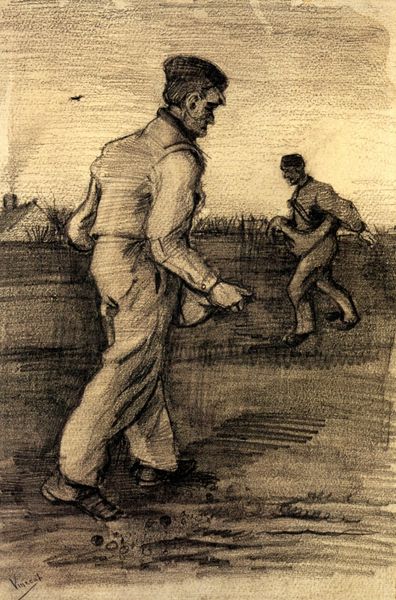
drawing, charcoal
drawing
landscape
charcoal drawing
figuration
charcoal
post-impressionism
realism
Copyright: Public domain
Vincent van Gogh made this drawing of a reaper using pencil and chalk, probably in 1880, during his time in the Netherlands. This image presents us with a figure stooped in labour, cutting wheat in what appears to be a rural landscape. The drawing style is raw and emphasizes the figure's physical exertion. But what is its wider social context? Holland in the 1880s was dealing with significant social stratification and industrial change. Van Gogh’s decision to portray peasants wasn't arbitrary; it aligns with a broader interest in representing the working class during this era. When we consider the role of institutions, we can note that images of rural labourers had a long tradition in Dutch art. By focusing on the working class, Van Gogh was consciously engaging with the social realities of his time, questioning the institutions that governed society. Understanding art requires us to dig into the cultural and historical context, using resources such as letters, social histories, and institutional records. In doing so we can better appreciate its meaning as a reflection of social conditions.
Comments
No comments
Be the first to comment and join the conversation on the ultimate creative platform.
